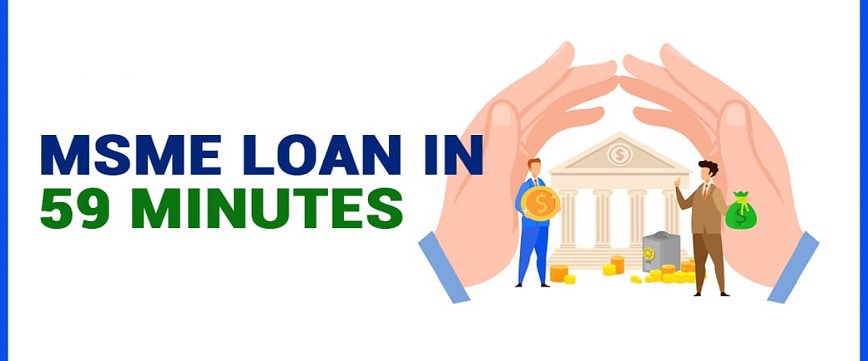
The Micro, Small, and Medium Enterprises (MSME) sector has become a robust and dynamic part of the Indian economy in the past five decades. This sector is fundamental in providing extensive job opportunities at a much lower capital cost than large industries, as well as facilitating the industrialization of rural and backward locations - reducing regional discrepancies, and providing for a more equitable distribution of national wealth. MSMEs are complementary to large-scale industries as subcontractors which contributes substantially to the country's socio-economic growth.
The MSMED Act of 2006 was established to address the policy issues facing micro, small and medium enterprises (MSMEs) as well as their investment and coverage limitations. This Act looks to promote the development and increase the competitiveness of these businesses. It is the first time such a legal framework has been provided for defining enterprise, which incorporates both manufacturing and service entities, and for segregating them into three sections- micro, small and medium.
The Act even includes a statutory consultative mechanism at a national level with balanced representation from all parties involved - most notably from the three classes of enterprises - that acts as an advisory body.
Moreover, there are other aspects of this Act such as specific funds for promoting the development and competitiveness of MSMEs, preference in Government procurements for products/services from micro/small businesses, enhanced mechanisms to tackle delayed payments to these ventures, and an assured scheme to enable their dissolution.
The Micro, Small, and Medium Enterprises- Development Organisation (MSME-DO) is presided over by the Additional Secretary & Development Commissioner (MSME), who assists in formulating, coordinating, administering, and evaluating policy initiatives and projects for the advancement of MSMEs throughout the country.
The Office has employed a variety of resources to achieve these objectives, such as organizing 30 Micro, Small, and Medium Enterprises-Development Institutes (MSME-Dls) 28 Branch MSME-Dls 4 MSME Testing Centres (MSME-TCs) 7 MSME-Testing Stations (MSME-TSs) 2 MSME-Training Institutes (MSME-Tls) and 1 MSME-Technology Development Center-Hand Tools (MSME TDC Hand Tools). It also oversees a network of Tool Rooms and Technology Development Centres governed by autonomous bodies registered as Societies under the Societies Act. This includes two Footwear Training Institutes. Detailed information on all schemes is provided in a booklet produced by the Office.
Up to Rs. 100 lac per borrowing unit, the Scheme covers collateral-free credit facilities (term loans and/or working capital) offered by eligible lending institutions to new and existing micro and small enterprises. The guarantee covers 75% of the credit facility.
10.25% - 16.25% p.a.
The maximum loan amount offered by banks/NBFCs to MSMEs, individuals, startups, self-employed professionals, and other business entities is Rs. 40 lakh.
To facilitate credit flow to MSMEs, CGTMSE has been established to strengthen the credit delivery system and facilitate credit flow to banks and financial institutions.
In order to expand their business or to start a new company, Micro, Small, and Medium Enterprises can access MSME loans, which have interest rates starting at 7.65% p.a. The loan amount sanctioned ranges from as little as Rs. 50,000 to several crores.
Those who wish to successfully apply for the PSB 59 minutes loan must meet the following criteria: They must be self-employed or running an existing business that is GST compliant.
No-collateral MSME loan can be secured by applying to financial institutions under the following schemes or loans-
The Credit Guarantee Fund Trust for Micro and Small Enterprises (CGTMSE) scheme provides an MSME loan up to Rs 10 lakh without collateral.
Submit Application. Simply enter your personal, business and financial info to receive an MSME / SME Loans offer.
Upload Documents. Upload digital copies of your documents in a single-step process for verification.
Get Sanctioned.
Business loan calculators are online tools that are easy to use. It is the first step to determine the amount of loan you should avail of so that the EMI is affordable and does not impact your monthly business needs.
Make sure you have a good credit profile before applying for a new business loan. A CIBIL score of at least 750 or above is ideal when applying for a business loan, as a low score may result in the loan application being rejected.
To achieve Make in India and Zero Defect & Zero Effect Manufacturing, the Indian government has envisioned the creation of an ecosystem for competitive, quality, and clean manufacturing, the development of world-class products, and the expansion of MSMEs' markets.
To improve liquidity for your business, the Bank of Baroda offers digital MSME working capital loans. Loan amounts start at Rs 10 lakh and go up to Rs 50 lakh.
The MSME registration, also known as Udyam registration, is open to all medical services, including hospitals, nursing homes, and clinics.
Registration for MSME is fully online, paperless, and based on self-declaration. No documents or proof are required for registration. The Aadhaar number is sufficient.
It is aimed at empowering women by providing them with the necessary MSME loans so that they can achieve financial stability. The most important aspect of this scheme is that it offers a 15% discount on project costs, which is up to a maximum of $12,500 per individual.
MSME Loans documentation includes Pan Card, Aadhar Card, Passport.
Trade License.
Lease Agreement.
Sales Tax Certificate.
Utility Bill under the name of the business – Telephone or Electricity bill, not more than 3 months old.
MSMEs Credit Health Index is an attempt to provide data-driven insights on their credit health. The MSME Credit Health Index is compiled using credit data provided by Credit Lending Institutions (CLIs) to TransUnion CIBIL. Growth and Strength are the two most important aspects of the MSME credit health index.
Check different types of loans, government loans, benefits, online & offline application process, interest rates, etc. Click here to know about E Mudra Loan Schemes Apply Online & PM Svanidhi Scheme Loan, Online Apply, Registration on Portal.
For more information visit: MSME Loan